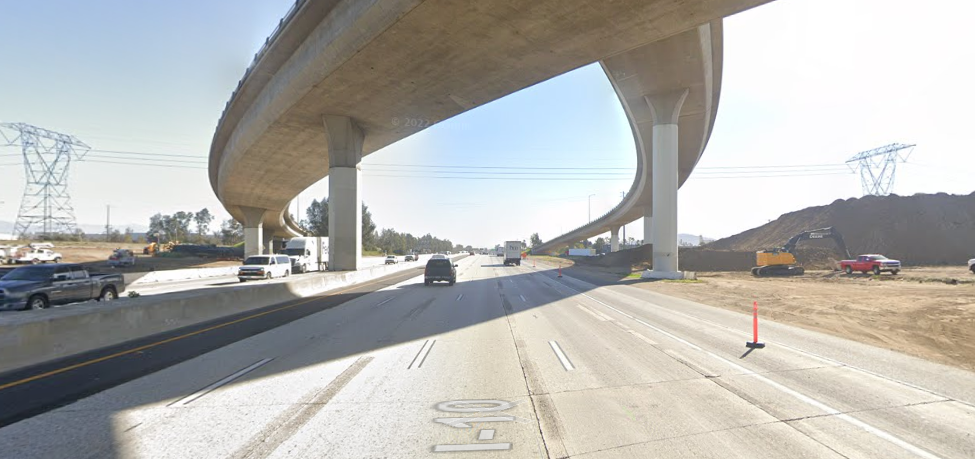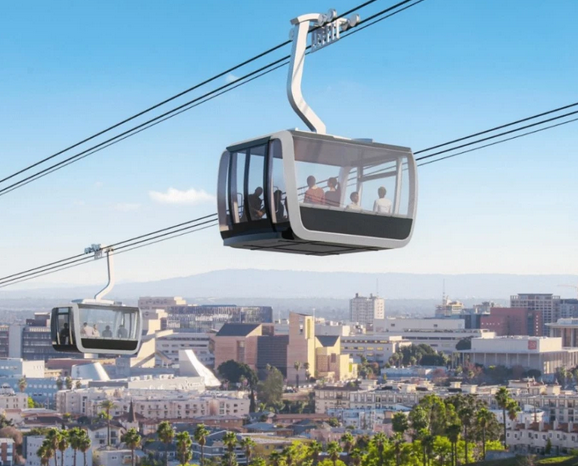Last week the California Transportation Commission commission allocated $700 million for highway repair and maintenance projects throughout the state, with about $272 million coming from S.B. 1, the state gas tax.
The list of projects that will receive money is available at the CTC website, and includes projects in almost every Caltrans district. There are a lot of bridge repair and pavement rehabilitation projects, pedestrian and bicycle safety projects, roundabouts and signals, lighting, erosion control and drainage projects. District 3 in Sacramento has several highway widening projects (for example, $1.6 million to widen Highway 99 in Elk Grove), as well as a new bikeway and a new passenger rail station (also in Elk Grove). Most of the money allocated to District 7 (Los Angeles/Ventura) was for bicycle and pedestrian improvements, including bikeways, crosswalks, traffic circles and curb extensions, and signals in various cities.
But that's not the only money that was allocated or approved at last week's CTC meeting. As always, numerous requests for allocations and project amendments and project list amendments were considered over the two-day meeting, for both highway and transit projects. These included quite a number of requests for more money for projects that had run into the problem of bids coming in higher than expected due to a combination of labor and materials shortages.
One agenda item that sailed through quietly with little discussion was an "advance" payment from the Trade Corridor Enhancement Program (TCEP), which is an S.B. 1 (gas tax) funded program, for two highway projects [Agenda item #21 (PDF)]. The stated reason for advancing funds early was to be able to take advantage of incoming federal funds by showing that these projects had matching state funding lined up.
"Early" also means "before the TCEP guidelines have been updated," and "before the call for funding requests goes out." TCEP was specifically mentioned in the Climate Action Plan for Transportation Investments (CAPTI), released last summer, as a source of "discretionary" funds that could and should be used to advance climate goals, and the upcoming, still incomplete guidelines should reflect that fact. That is, at the very least projects funded within that program shouldn't be at odds with CAPTI.
One of the early TCEP projects funded is a truck facility in Cordelia.
The other early TCEP project is a highway widening project on I-10 in San Bernardino which would construct "three eastbound auxiliary lanes and one westbound auxiliary lane" as well as a new toll lane. The new highway capacity means the project is unlikely to be aligned with CAPTI.
In addition, these two "early" projects were awarded large shares of the planned regional TCEP monies. That is, the Cordelia facility was approved for an amount that is about half of the total that would go to the Bay Area (almost $65 million), and the I-10 HOV lanes in San Bernardino would take up a big chunk - but not quite half - of the Southern California region share ($85 million).
The item passed with minimal discussion, and there doesn't seem to have been a public discussion or evaluation of the projects and how they meet TCEP criteria.
The plan to advance some payments was discussed at a TCEP workshop in April, but CTC staff at that meeting would not name nor discuss the projects that were already being considered, and told workshop participants that a tight deadline meant it was too late to consider any others.
Several workshop attendees were taken aback by this, with one participant saying, "That seems incredibly, outrageously unfair, that you have applicants that are jumping the gun and trying to get the moneys on top." Several other participants objected that they didn't know projects were submitting applications for the advance payments.
A long discussion ensued about why the advance payments were being considered - short answer: it's about California trying to get as much federal infrastructure money as possible. But neither of these projects seem to have been identified by the regions as top priorities. The secretive process also preempted any evaluation of them within the context of all the other TCEP applications, which won't be submitted until the guidelines are finished and the call goes out.
Draft TCEP guidelines update will be presented to the CTC at its June meeting.






